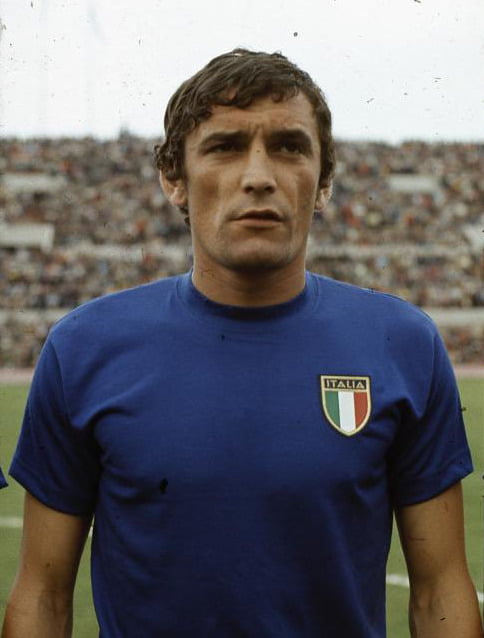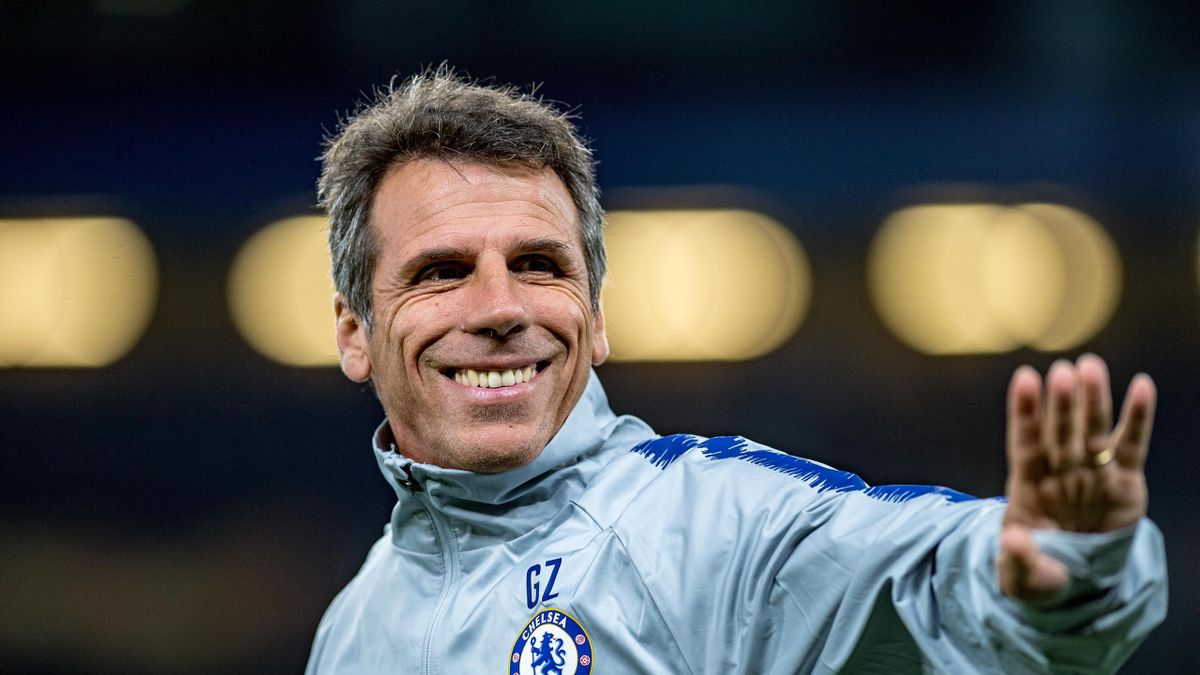Gianfranco Zola shared his memories of Luigi Riva at Cagliari, saying “Thanks to him I became a footballer”. Riva sadly passed away on Monday at the age of 79, having suffered a heart attack after being admitted to hospital for acute coronary syndrome. Writing for La Gazzetta dello Sport, Zola talked about the Cagliari and Azzurri legend and the incredible influence he had on his own career, calling him a spokesman for Sardinia:
“You should know that my father had never played football. And he had never seen a match. And he really didn’t care. Zero. Light years away from everything that was then my life as a sportsman. Very far away. Until around the age of thirty when he happened to see Gigi. Gigiriva, all attached like Paolo Rossi. He saw a match of his Cagliari team. And above all, he saw him play. And he went ‘mad’. Mad about football and that big man who scored goals, who celebrated everyone. From that day on, he became a football maniac, he took me to training sessions, he gave me balls, he later became president of the village team: from that moment on, when he fell in love with Gigi, I became a footballer’.
There is a lot of Gigi inside Gianfranco in short…
“My dad Ignazio had been a shepherd, a truck driver, he didn’t have time to play football, he had to work. Then Gigi came along, a flash: I can say that I became what I was thanks to my dad and him. Gigi. Yes, in a certain sense Riva is inside me’.
Boninsegna called him ‘my Hulk’. For you what was he?
“For me he was God, the centre of the Universe, the man who represented and sustained a people, our people. He was not a constructed man. He was natural. He was not born in Sardinia but he chose my land. And he cultivated it’.
Your ‘first time’?
“I saw that big, charismatic man at a small tournament, a Memorial for which Gigi had come to kick-off or act as testimonial. It was in the mid-1980s, I think’.
Did you ask him for his autograph?
‘I didn’t ask him just because I had to start playing, the little match…’.
Did you talk to each other often?
“We had even eaten together at a restaurant near the port not long ago. We spoke to each other yes, pleasantly even. We also talked about our people: although he was not born here, he had a sensitivity towards this extraordinary, unique land. He was close to the people and he cared about the people. The miners, the milk sellers: he backed their battles, he spoke on their behalf always without an extra sentence but with sober reasoning, his own, without a lot of useless turns of phrase. He was our spokesman.
He was not afraid to give. And to say.
‘He was shy, honest and forthright: yes, he made honest suggestions. And he had no problem exposing himself. Giving himself away. He didn’t mince his words, never. I remember that I once confided in him about my adventure in England: he advised me to behave in a certain way, I didn’t listen to him, I regretted it and I told him some time later’.
“I was in my second year in England, I used to tell him how the days of the week were marked out in anticipation of the next Premier League match with Chelsea. Intense training sessions, one a day in the morning, and in the afternoon we socialised, we went to play golf with the team, in short a less intense approach than in Italy. I liked it. I was enthusiastic. There was less work than in Italy and I was in a world that seemed perfect to me.
And he said it wasn’t so perfect…
“He told me that he did not share anything or very little of this management. He told me: ‘You know Gianfranco, I like England and I’m fascinated by English football, but I’ve always seen preparation as a decisive period, as a fundamental basis. If you do it well then it protects you the whole year, it makes you feel good for the whole season’. I was convinced instead that what we were doing would bring benefits, less stress, maybe more free time without thinking only and solely about football. Do you believe that? I had a year with many stoppages and some injuries, continuous ups and downs. And one day his words came back to me: he was right.
You also said: ‘He is the symbol of our Sardinia. He chose us. We have admired him, loved him, breathed him. We will continue to do so: forever, from generation to generation’.
‘Of him, humanly, I also liked that he didn’t give a damn about saying things that might have been uncomfortable. And he played football like a champion. Little by little comparisons were made with others, perhaps examining his left foot, his power, his physique, his header. It may seem trivial, but for me, and I think also for many who have watched football since him, he remains and will remain a unique piece’.
What other advice did Giggirriva give you?
“We got to know each other well in the national team: he was linked to Robi Baggio but dispensed advice to those who asked for it. I called him before my return to Sardinia, to Cagliari: I asked him what the environment was like, how the team was, President Cellino, in short, whether I should give in to the desire to return to my homeland. It was important, he gave me enormous suggestions’.
As soon as you heard the news what did you think?
‘Diego, Vialli, Paolorossi, now him: they all left a mark on me, Gigi was a divinity for me’.


